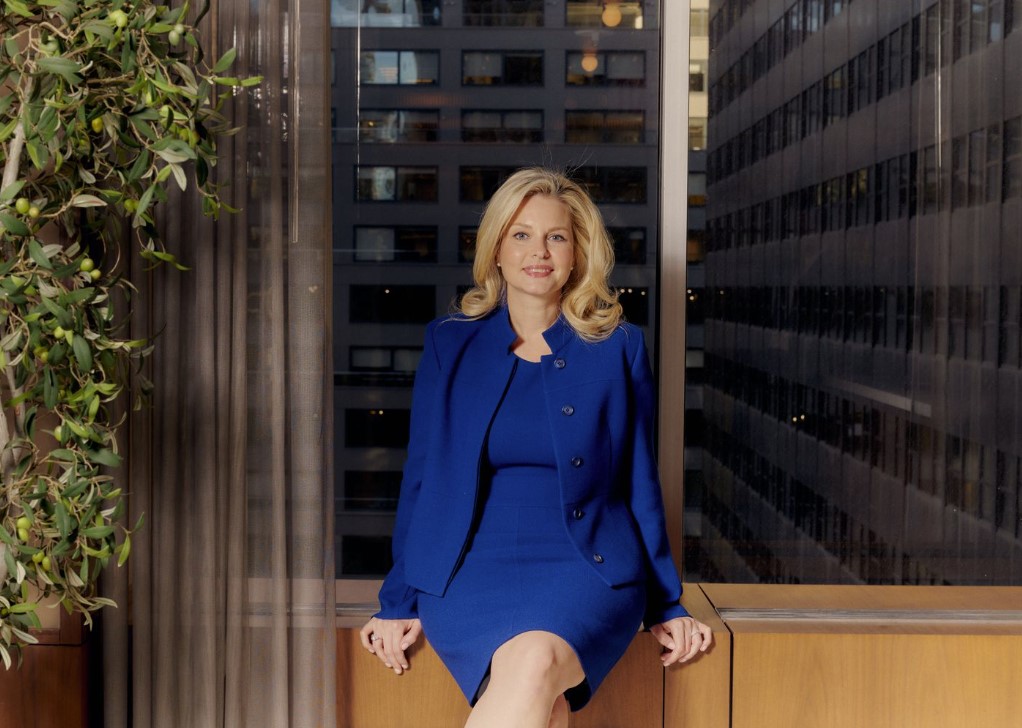Warburg Pincus Alum’s Coalesce Capital Banks $900 Million for Debut Fund
Stephanie Geveda’s private-equity firm gained early fundraising traction with backing from former colleagues

When Stephanie Geveda left global private-equity firm Warburg Pincus to start Coalesce Capital, she knew she would face her share of rejection.
“The nos come fast and often to your face,” Geveda said. “That rejection can be hard to stomach, and when you’re a founder, it can feel very personal.”
But Coalesce still connected with plenty of investors who said yes, helping the firm raise about $900 million for its debut fund, which recently closed above an initial $750 million goal. The amount ranks the vehicle among the larger debut pools in a private-equity fundraising market that has seen capital consolidate with larger, veteran firms.
The firm garnered early support for its first fund from the broader Warburg Pincus community, including executives there and at its portfolio companies, according to Geveda and other people familiar with the fundraising. That support helped Coalesce gain momentum in a particularly difficult period for fundraising, said Brian Levine, co-founder, partner and global head of PJT Park Hill, which helped market the new fund to investors.
For Geveda, “what was also extremely helpful was the fact that she had a track record that she was able to utilize while fundraising,” Levine said.
Last year only 54 U.S. first-time funds closed, representing only around 14% of the total number of U.S. private-equity funds raised in 2023, the lowest percentage since at least 2008, according to research provider PitchBook Data.
Institutional investors that disclosed commitments to Coalesce include the California Public Employees’ Retirement System, which pledged up to $150 million. Other investors include the Illinois Municipal Retirement Fund and New York State Common Retirement Fund.

“The folks that do commit to you in this environment, they are true believers in the strategy,” Geveda said. “That’s the silver lining.”
Coalesce targets investments in business services providers with enterprise values ranging from $100 million to $300 million. The firm generally focuses on companies with at least $5 million to $50 million of earnings before interest, taxes, depreciation and amortization.
“That was the opportunity that was hard for me to take advantage of at Warburg, because a lot of these companies were below the radar of what we focused on,” Geveda said. At Warburg, she led or co-led investments in business services companies such as street cleaning specialist Sweeping Corp. of America and data and analytics technology provider Spins.
Coalesce focuses on companies that perform essential business operations and rely heavily on skilled workers or technology-based processes, making their services hard to replace, according to Geveda. For example, the firm looks at subsectors that include services for infrastructure, commercial buildings and facilities, testing, inspection and compliance, or housing and franchise businesses, according to its website.
“A lot of these companies play into secular themes that we think will take a decade or two to unfold,” Geveda said.
For example, in its first deal last year Coalesce backed Examinetics, a company that offers occupational-health compliance services and related technologies.
Since Geveda set up Coalesce, the firm has grown to around 15 employees. Investment professionals hired by the firm include Jon Gurss, who joined as a partner from Sentinel Capital Partners, and Thomas Shi, who joined as a managing director from Flexpoint Ford.
Expanding the operation has been important to its success so far, she said.
“That’s the biggest lesson of launching Coalesce,” said Geveda. “There’s little in life worth doing that you can do alone.”